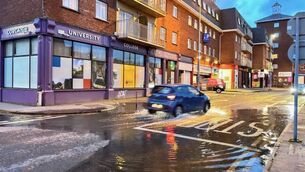Crisis for homeless Travellers going unreported causing serious concerns for mental health

A soon-to-be published report, Traveller Homelessness: Qualitative Research in County Offaly, finds that homelessness among Travellers is significantly underestimated and is heightened by “widespread discrimination and institutional racism.”
Research consultant Niamh Murphy, who carried out the study, said within county Offaly, 19.1% of homeless presentations to the council are Travellers, yet they account for only 1.3% of the population overall.













